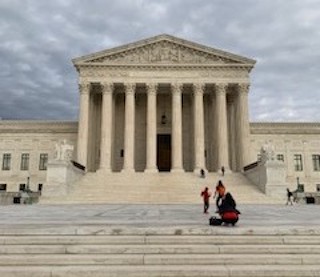Probable Cause and the Totality of the Circumstances
In what can only be characterized as giving police officers carte blanche to arrest, the U.S. Supreme Court has issued its most recent opinion on January 22, 2018 on probable cause to arrest. District of Columbia v Wesby (2018 DJDAR 694).
The opinion, by Justice Clarence Thomas, arises out of a civil lawsuit for false arrest by sixteen individuals who were arrested for unlawful entry by five District of Columbia police officers for holding a late-night party at a vacant house. Neighbors had reported loud music and illegal activities there. The lower court ruled that the police officers lacked probable cause to arrest and the appellate court affirmed.
Why This Article Matters: The Supreme Court’s opinion in the case summarized is bad for defendants and seems to take a step backwards for lawful arrests. Instead of more carefully defining what facts can support probable cause to arrest, the Supreme Court now allows probable cause to be a “fluid concept,” which we think inject ambiguity into the analysis, rather than clarity.
The police officers then filed a writ of certiorari to have the U.S. Supreme Court review the rulings thus far. The U.S. Supreme Court reversed, finding the officers had probable cause to arrest.
To appreciate how the Court came to find probable cause, it is telling in how the facts of the case are recited by Justice Thomas. He describes officers being alerted to loud music and illegal activities in a vacant house. The officers arrive and find the house “nearly barren and in disarray.” The officers smelled marijuana and observed beer bottles and cups of liquor on the floor, “which was dirty.” “They found a makeshift strip club in the living room, and a naked woman and several men in the upstairs bedroom. Many partygoers scattered when they saw the uniformed officers, and some hid.”
The officers questioned everyone and got inconsistent stories. Two women identified “Peaches” as the house’s tenant and that she gave permission for the partygoers to have a party. The officers then spoke to Peaches, who admitted she did not have permission to use the house. The owner confirmed he had not given permission to anyone to use the house. The offices then arrested the partygoers for illegal entry.
 U.S. Supreme Court
U.S. Supreme Court
Justice Thomas first cited to an officer’s duty to consider the “totality of the circumstances” (Maryland v. Pringle (2003) 540 U.S. 366, 371) and to make “reasonable inferences” that the partygoers knew they did not have permission to be in the house. Pringle, at 372. Taken together, the condition of the house and the conduct of the partygoers allowed the officers to make several “common sense conclusions about human behavior.” Illinois v. Gates (1983) 462 U.S. 213, 231. Because most homeowners don’t live in such conditions or permit such activities in their homes, the officers could infer that the partygoers knew the party was not allowed and their entry was not permitted. Moreover, the partygoers scattered and hid when the officers arrived, suggesting they knew they were not supposed to be there.
Justice Thomas then took aim at the lower courts’ rationale, criticizing each court as analyzing each fact “in isolation, rather than a factor in the totality of the circumstances.” Pringle, supra, at 372. He also criticized the lower courts’ readiness to dismiss any circumstance that could be “susceptible of innocent explanation,” (United States v. Arvizu (2002) 534 U.S. 266, 277) rather than factoring each into the totality of the circumstances.
The opinion then went on to quote Gates, stating probable cause is a “fluid concept” which requires only a probability or substantial chance of criminal activity, not an actual showing of such activity.”
We think this “fluid concept” opinion is far too lenient for overzealous officers and we fear that judges will find probable cause far more easily than in the past. We hope that this new concept is limited in its application to evaluation in civil cases for false arrest and is not extrapolated into criminal cases.
The citation for the U.S. Supreme Court ruling discussed above is District of Columbia v. Wesby (2018) 583 U.S. ___, 138 S. Ct. 577, 199 L. Ed. 2d 453.
 U.S. Supreme Court
U.S. Supreme Court